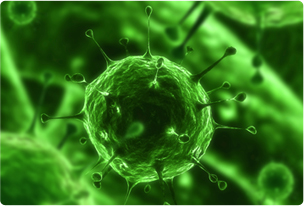Coping with Cancer

Understanding Cancer
Cancer is a term for diseases in which abnormal cells divide without control and can invade other tissues. Cancer cells can spread to other parts of the body through the blood and lymph systems. This spread of cancer is also called ‘metastasis’ or ‘metastatic disease’.
Cancer is not just one disease but many diseases. There are more than 100 different types of cancer. The main categories of cancer include:
- Carcinoma – cancer that begins in the skin or in tissues that line or cover internal organs.
- Sarcoma – cancer that begins in bone, cartilage, fat, muscle, blood vessels, or other connective or supportive tissue.
- Leukaemia – cancer that starts in blood-forming tissue such as the bone marrow and causes large numbers of abnormal blood cells to be produced and enter the blood.
- Lymphoma and myeloma – cancers that begin in the cells of the immune system.
- Central nervous system cancers – cancers that begin in the tissues of the brain and spinal cord.

FATIGUE
Fatigue can become a very important issue in the life of a person with cancer. It may affect how the person feels about him- or herself, his or her daily activities and relationships with others, and whether he or she continues with cancer treatment. Fatigue occurs in 14% to 96% of people with cancer, especially those receiving treatment for their cancer. Specific symptoms may be physical, psychological, or emotional. To be treated effectively, fatigue related to cancer and cancer treatment needs to be distinguished from other kinds of fatigue.
TREATMENT FOR FATIGUE
Most of the treatments for fatigue in cancer patients may just well be managing its symptoms and providing emotional support as causes of fatigue that are specifically related to cancer have not been determined.
Some of these symptom-related treatments may include adjusting the dosages of pain medications, administering red blood cell transfusions or blood cell growth factors, diet supplementation with iron and vitamins and antidepressants or psycho-stimulants.
PAIN
Cancer pain can be managed effectively in most patients with cancer or with a history of cancer. Although cancer pain cannot always be relieved completely, therapy can lessen pain in most patients. As patients vary in diagnosis, stage of disease, responses to pain and treatments, and personal likes and dislikes, management of cancer pain must be individualized. Patients, their families, and their health care providers must work together closely to manage a patient’s pain effectively.
PAIN MANAGEMENT
Pain management improves the patient’s quality of life throughout all stages of the disease. The World Health Organization developed a 3-step approach for pain management based
on the severity of the pain:
- For mild to moderate pain, the doctor may prescribe a Step 1 pain medication such as aspirin, acetaminophen, or a non steroidal anti inflammatory drug (NSAID). Patients should be monitored for side effects, especially those caused by NSAIDs, such as kidney, heart and blood vessel, or stomach and intestinal problems.
- When pain lasts or increases, the doctor may change the prescription to a Step 2 or Step 3 pain medication. Most patients with cancer-related pain will need a Step 2 or Step 3 medication. The doctor may skip Step 1 medications if the patient initially has moderate to severe pain.
Other Complications and Side Effects
1. Cognitive Disorders and Delirium
Cognitive disorders and delirium are conditions in which the patient experiences a confused mental state and changes in behavior. People who have cognitive disorders or delirium may fall in and out of consciousness
and may have problems with the following: attention, memory, thinking, muscle control, awareness, sleeping and waking and emotion.
Delirium occurs frequently and suddenly and the patient’s symptoms may come and go during the day in cancer patients, especially in patients with advanced cancer.
TREATMENT OF THE CAUSES OF DELIRIUM
The standard approach to managing delirium is to find and treat the causes. Symptoms may be treated at the same time.
Treatment may include the following:
- Stopping or reducing medications that cause delirium.
- Giving fluids into the bloodstream to correct dehydration.
- Giving drugs to correct hypercalcemia (too much calcium in the blood).
- Giving antibiotics for infections.
2. Fever
The main causes of fever in cancer patients are
- Infections, a common cause of fever in cancer patients and can cause death.
- Tumor cells, which can produce various substances that can cause fever reactions.
- Graft-versus-host-disease, occurs when transplanted bone marrow or peripheral stem cells attack the patient’s tissue.
- Medications like chemotherapy drugs, biological response modifiers, and antibiotics, such as vancomycin and amphotericin.
GENERAL TREATMENTS TO RELIEVE FEVER
Along with treatment of the underlying cause of fever, comfort measures may also be helpful in relieving the discomfort that goes along with fever, chills, and sweats. During periods of fever, giving the patient plenty of liquids, removing excess clothing and linens,and bathing or sponging the patient with lukewarm water may give relief. During periods of chills, replace wet blankets with warm, dry blankets, keep the patient away from drafts, and adjust the room temperature to improve patient comfort.
3. Gastrointestinal Complications
Gastrointestinal complications such as constipation, impaction, bowel obstruction, diarrhea, and radiation enteritis are common problems for cancer patients, with causes that include the cancer itself or treatment
of the cancer.
a) ConstipationIn persons with cancer, constipation may be a symptom of cancer, a result of a growing tumor, or a result of cancer treatment. Constipation may also be a side effect of medications for cancer or cancer pain and may be a result of other changes in the body (organ failure, decreased ability to move, and depression). TREATMENT FOR CONSTIPATION Prevention is the best treatment for constipation through elimination of possible causes and limited use of laxatives. | b) ImpactionPatients with impaction may have symptoms similar to patients with constipation, or they may have back pain or bladder problems. The patient’s abdomen may become distended causing difficulty in breathing, rapid heartbeat, dizziness, and low blood pressure. TREATMENT OF IMPACTION
| |
c) Bowel ObstructionThe most common cancers that cause bowel obstructions are cancers of the colon, stomach, and ovary. A bowel obstruction may be caused by a narrowing of the intestine from inflammation or damage to the bowel, tumors, scar tissue, hernias, twisting of the bowel, or pressure on the bowel from outside the intestinal tract. It can also be caused by factors that interfere with the function of muscles, nerves, and blood flow to the bowel. | ||
d) DiarrheaThe most common causes of diarrhea are
TREATMENT OF DIARRHEA Diarrhea is treated by identifying and treating the problems causing diarrhea. For example, diarrhea may be caused by stool impaction and medications to prevent constipation. The doctor may make changes in medications, diet (like having small frequent meals or avoiding certain foods) and fluids. | e) Radiation EnteritisRadiation therapy stops the growth of rapidly dividing cells, such as cancer cells. Since normal cells in the lining of the bowel also divide rapidly, radiation treatment can stop those cells from growing, making it difficult for bowel tissue to repair itself. As bowel cells die and are not replaced, gastrointestinal problems develops. TREATMENT OF RADIATION ENTERITIS Treatment of enteritis includes treating the diarrhea, replacing fluid loss, improving poor bowel absorption, and relieving stomach or rectal pain. These symptoms usually get better with medications, changes in diet, and rest. If symptoms become worse even with this treatment, then cancer treatment may have to be stopped, at least temporarily. | |
4. Hypercalcaemia
Hypercalcaemia occurs in 10%-20% of people with cancer. The cancers most often associated with hypercalcaemia are cancers of the breast and lung, as well as certain cancers of the blood, particularly multiple myeloma.
Early diagnosis and treatment are not only lifesaving in the short term, but may also increase the patient’s ability to complete cancer therapy and improve the patient’s quality of life.
MANAGING HYPERCALCAEMIA
- Fluids are given to treat dehydration.
- Medication is given to stop the breakdown of bone.
The severity of the hypercalcaemia determines the amount of necessary treatment. Severe hypercalcaemia should be treated immediately and aggressively. Less severe hypercalcaemia should be treated according to the symptoms. Response to treatment is shown by the disappearance of the symptoms of hypercalcaemia and a decrease in the level of calcium in the blood.
5. Nausea and Vomiting
Nausea is an unpleasant wavelike feeling in the back of the throat and/or stomach that may or may not result in vomiting. Vomiting is the forceful elimination of the contents of the stomach through the mouth. Although treatments
have improved, nausea and vomiting continue to be concerned side effects of cancer therapy.
TREATMENT OF ANTICIPATORY NAUSEA AND VOMITING
Treatment of anticipatory nausea and vomiting is more likely to be successful when symptoms are recognized and treated early. Although anti-nausea drugs do not seem to be effective, the following may reduce symptoms:
- Guided imagery.
- Hypnosis.
- Relaxation.
- Behavioral modification techniques.
- Distraction (such as playing video games).
TREATMENT OF ACUTE AND DELAYED NAUSEA
Acute and delayed nausea and vomiting are most commonly treated with anti-nausea drugs. Some drugs last only a short time in the body, and need to be given more often; others last somewhat longer and thus are given less frequently. Blood levels of the drug(s) must be kept constant so that control of nausea and vomiting is effective.
The above mentioned side-effects and treatments are part of a more extensive and comprehensive booklet. To read more into the entire list of side – effects and their various treatments kindly obtain the full series of booklets on ‘Coping with Cancer and its Side Effects from Parkway Cancer Centre.
Disclaimer Notice:
The information provided on this website is not intended or implied to be a substitute for professional medical advice, diagnosis or treatment. All content, including text, graphics, images and information, contained on or available through this website is for general information purposes only. Parkway Cancer Centre makes no representation and assumes no responsibility if the information, contained on or available through this website, is taken without our specialists’ consult.
